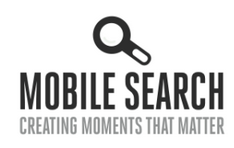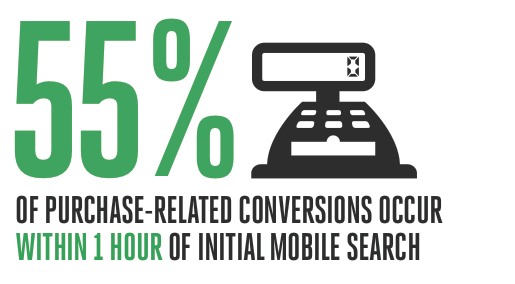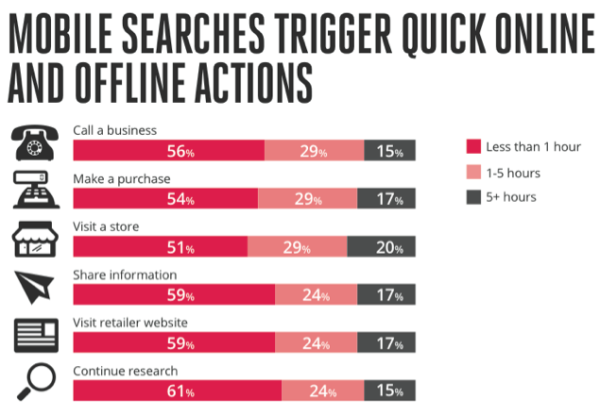Study: 55 Percent Of Mobile-Search Driven Conversions Happen In One Hour Or Less
Large numbers of people believe that the majority of mobile search activity happens “on the go.” However, according to an extensive new study from Google and Nielsen, the overwhelming majority (77 percent) of mobile search happens at home or work — even when there’s a PC nearby and readily available. These people are choosing to […]
 Large numbers of people believe that the majority of mobile search activity happens “on the go.” However, according to an extensive new study from Google and Nielsen, the overwhelming majority (77 percent) of mobile search happens at home or work — even when there’s a PC nearby and readily available.
Large numbers of people believe that the majority of mobile search activity happens “on the go.” However, according to an extensive new study from Google and Nielsen, the overwhelming majority (77 percent) of mobile search happens at home or work — even when there’s a PC nearby and readily available.
These people are choosing to search on their smartphones rather than PCs because of speed and convenience. And most of these users take some sort of near-immediate, follow-up action. In fact, the study found, 55 percent of mobile-search influenced conversions take place within one hour.
This finding closely mirrors a now-famous statistic published by Microsoft in 2010: 70 percent of mobile search activity begins and ends – in other words, a decision is made or the objective achieved – within one hour.
The new Google-Nielsen study, which focused only on smartphones, offers extensive insights into mobile search behavior and generally goes deeper than most of the research that predates it. It serves to provide additional nuance and color to what we already know about mobile user behavior. However, the “big takeaway” is that mobile is perhaps the most critical channel for search marketers.
The study was conducted in Q4 2012 and involved a mix of methodologies. They included user diaries, search query logging and online follow-up surveys. Here’s how Google describes the study methodology in its blog post:
We asked participants to log their mobile searches over two weeks in a diary smartphone app — logging more than 6,000 mobile searches in total. We followed up to ask them what actions resulted from those searches, helping us draw more precise, measurable connections between mobile searches and the conversions that they drive online and offline.
There’s a great deal of data in the report. Below are some of the high-level findings:
- 73 percent of mobile searches trigger follow-up actions
- 63 percent of mobile search-triggered actions occur within 1 hour of the initial search
- 45 percent of mobile searches “are conducted to help make a decision” (in a store, that number goes up to 66 percent)
- 28 percent of mobile searches result in conversions
There is also much more about when and where mobile searches occur (time of day, user context), as well as vertical categories where mobile searches are concentrated. In addition, the report explores specific outcomes resulting from mobile searches: calls, online purchases, offline store visit, subsequent research and so on.
A very interesting set of data surround the elapsed time between search and subsequent (often offline) action. The stats cited and the graphic above show how, in many cases, people will act almost immediately following a mobile search.
There were also a variety of findings about the impact, recall and effectiveness of mobile search advertising. During “goal-oriented” queries, for example, mobile users are most inclined to notice mobile ads and find them relevant and helpful. Overall, 65 percent of participants in the study noticed mobile search ads.
Mobile search-ad recall was found to be highest when people are engaged in commercial-intent searching — in stores. In other words, commercial queries tied to products are going to be extremely valuable to search marketers and retailers because they indicate an immediate buying intent, as well as the ability to influence a near-term purchase outcome.
As I’ve indicated, there’s much more information in the report. All search marketers should take a look at it — and use it to argue for more budget for mobile advertising. You can obtain a copy of the full report here (.pdf).
Contributing authors are invited to create content for Search Engine Land and are chosen for their expertise and contribution to the search community. Our contributors work under the oversight of the editorial staff and contributions are checked for quality and relevance to our readers. The opinions they express are their own.
Related stories
New on Search Engine Land


